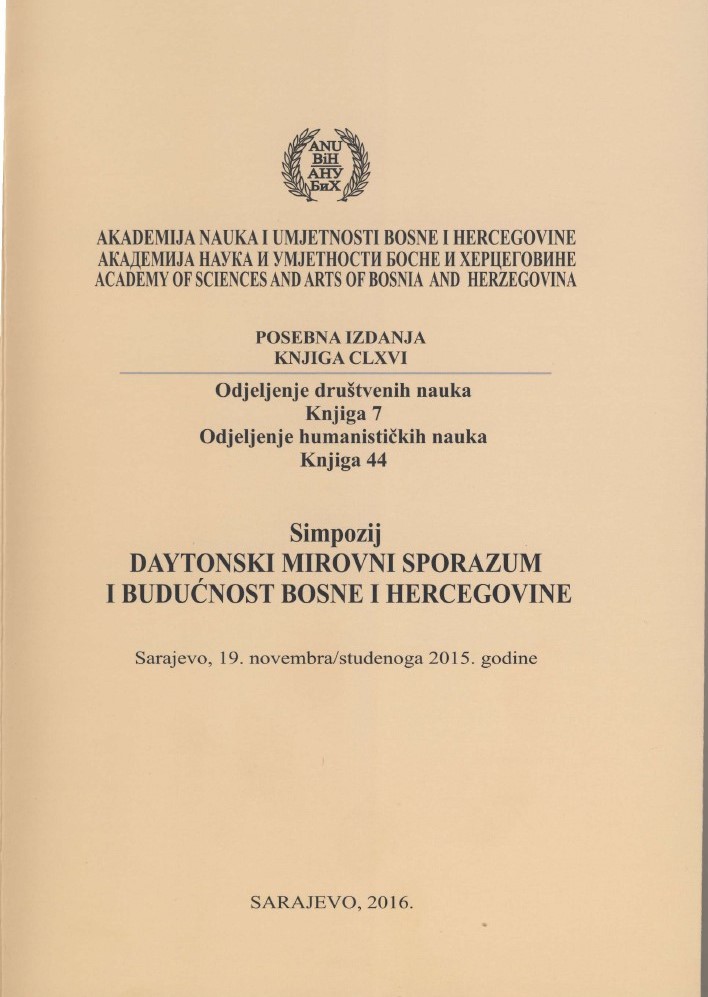PAX AMERICANA. REPUBLIKA BOSNA I HERCEGOVINA I MEĐUNARODNA DIPLOMATIJA OD VAŠINGTONSKOG DO DEJTONSKOG MIROVNOG SPORAZUMA (18. III 1994 – 21. XI 1995)
PAX AMERICANA. THE REPUBLIC OF BOSNIA AND HERZEGOVINA AND INTERNATIONAL DIPLOMACY FROM WASHINGTON TO DAYTON PEACE AGREEMENT (18 March 1994 – 21 November 1995)
Author(s): Zijad ŠehićSubject(s): Political history, International relations/trade, Transformation Period (1990 - 2010)
Published by: Akademija Nauka i Umjetnosti Bosne i Hercegovine
Keywords: Washington Agreement; Contact Group; international diplomacy; USA; Dayton Agreement;
Summary/Abstract: On the basis of the reference literature and diplomatic sources, the author considers the plans and activities of the international community to end the war in the republic of Bosnia and Herzegovina in the period from the Washington to the Dayton Peace Agreement. Special attention is devoted to the events that had influenced the change of former US policy and its more active engagement. The analysis of international diplomacy and attitudes of various countries towards the developments in the Republic of Bosnia and Herzegovina, pointed to the complexity of achieving a peace agreement for which the United States had to try out various strategies and seek different solutions, whereby a significant role was played by the situation at its inner-political scene. Author pays special attention to the events that paved the way for a peace agreement, as well as the military and political means that had played a key role in achieving peace. Based on the analysis of the provisions and implementation of the Dayton Peace Agreement, author believes it had ended the war, but did not allow the establishment of a functional state, because the ideologies that had caused the war continued to live and deepen the divisions in BiH society through propaganda and rhetoric. He believes that re-enabling normal life in Bosnia and Herzegovina requires the removal of these structures and the consequences that they have produced and continue to produce, which is why Bosnia and Herzegovina is waiting for support for its European path. He claims that it can only work if the democratic settings, if needed, be even imposed by the international community, which left the project of building the institutions unfinished. If the international community consistently supports this, author believes that the path of accession of Bosnia and Herzegovina to the modern European societies will be much shorter and much faster.
Journal: Posebna izdanja Akademije nauka i umjetnosti BiH
- Issue Year: 2016
- Issue No: 2
- Page Range: 15-39
- Page Count: 25
- Language: Bosnian

